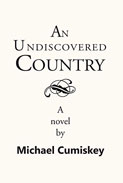
 |
In this work of historical fiction about Ireland during the mid-to-late 1900s, Cumiskey manages to write with an articulate voice that has the air of a classic. This novel follows the life of Lorna and her family. Although initially narrated from the point of view of her father—with a few sections following her brothers, Patrick and Peter—the story centers around Lorna's life throughout the years of her childhood and adulthood. Simultaneously, tensions rise between the Irish Republican Army (IRA) and the British in Northern Ireland as the IRA seeks to end British rule. Ireland's history is mostly within the news excerpts and Lorna's diary entries at the beginning of each chapter. However, it still leaks into the storyline, both explicitly and implicitly, as Lorna's life begins to mirror the chaos of a nation bloodied by war and casualties.
After Lorna's father dies early in the book, she and her family move to England to get away from the violence. Still, it follows them in different ways. For one, it isn't long before her stepfather—an accused child molester—takes advantage of Lorna, keeping her silent with fear tactics as he regularly visits her room at night. Ashamed and afraid of hurting her mother, Lorna suffers the abuse and pretends that nothing is wrong. However, the effects of being raped continue to haunt her even after she manages to get away from home. The trauma follows her throughout most of the book the same way war leaves its mark throughout generations.
What is admirable about Lorna's characterization is that, though her trauma drags her down at times—affecting both her physical and mental health and causing her to become estranged with certain family members—Lorna does her best to make a life for herself by going to college, getting a teaching job, and eventually falling in love. Although Lorna has the narrative's primary focus, her siblings and husband are thoroughly characterized, each with their own conflicts, which are a byproduct of the abuse they grew up with. Despite all of their problems and the estrangement that separates them, Lorna is the one they all turn to. Her interactions with her siblings after years of separation do a great deal in shaping her character. Watching her grow from a child into a bright, loving, and accepting woman that her siblings look up to, despite all of her trauma, is encouraging.
In a similar vein, with Lorna as a metaphor for Northern Ireland, her capabilities represent the hope that still exists despite the land and people being ravaged with war and death. The history that is made through bloodshed cannot be forgotten, as becomes evident with Lorna when her mental struggles worsen. But improvement and change can still be made, similar to the way Lorna remains hopeful.
Although some additional editing would enhance the novel's power, Cumiskey performs incredibly with his attention to dialect. The characters' dialogue is lively because of the realistic accents that they speak in. Additionally, he successfully condenses three decades over the course of the book. At no point does jumping in time and focusing on particular years feel confusing. On the contrary, the transitions are smooth, and the characters are interesting enough to keep the reader enthralled throughout the years of Lorna's young adulthood and middle age.